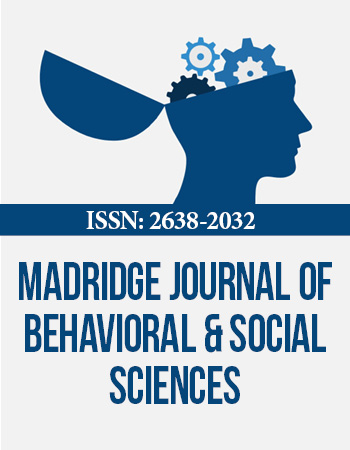International Conference on Alzheimerʼs Disease & Associated Disorders
May 7-9, 2018 Rome, Italy
Role of Microbiota Derived Short Chain Fatty Acids in α-Synuclein Aggregation and Seeding
1Mount Sinai School of Medicine, USA
2Icahn School of Medicine at Mount Sinai, USA
Objective: To determine whether microbiome derived short chain fatty acid (SCFA) may modulate abnormal α-synuclein misfolding and seeding activity of α-synuclein to support the hypothesis of potential novel therapeutic approaches.
Background: There is growing evidence from both in vivo and in vitro studies that in many neurodegenerative disorders, including synucleinopathies, cell-to-cell transmission of a pathological, misfolded protein occurs and may be a vehicle for spreading of pathology throughout the brain. We hereby investigate whether microbiota-derived SCFAs may help attenuate the misfolding of α-synuclein and their effects on seeding synucleinopathy.
Design/Methods: In vitro aggregation of α-synuclein in the absence or in the presence of SCFAs at a molar ratio of 1:1 or 1:4 α-synuclein:SCFA, were monitored by using independent assays: photo-induced cross-linking of unmodified proteins assay, thioflavin-T, fluorescence assay, or electron microscopy.
Results: We found that select microbiome-derived SCFAs significantly interfere with α-synuclein aggregation in independent in vitro assays.
Conclusions: Select microbiome-derived SCFAs may help protect against diverse synucleinopathies by converting dietary fibers into biologically available SCFAs which significantly interfere with aggregation of disease-specific αsynuclein into toxic aggregates. Ongoing cell-based systems, which detect levels of α-synuclein by florescent FRET signaling, will clarify the impact of this antiaggregation activity of SCFAs on interference of α-synuclein seeding activity that is critical for the propagation of α-synuclein mediated pathologies. This data will help to clarify distinct α-synuclein seeding activity from α-synuclein isolated from post-mortem brain samples of patients with Parkinsonʼs disease, multiple systemic atrophies, and other synucleinopathies, leading to novel therapeutic approaches.
Biography:
Dr. Giulio Maria Pasinetti is the Saunders Family Chair and Professor of Neurology at the Icahn School of Medicine at Mount Sinai. He is the Program Director of the Center on Molecular Integrative Neuroresilience. The primary goal of the Center grant is understand the molecular mechanisms and pathophysiology that may be at the basis of stress-induced mood disorders, which are major risk factors for acceleration of age-related Alzheimerʼs disease and other forms of dementia. Dr. Pasinettiʼs Center is currently testing novel brain bioavailable bioactive “phytodrugs” that have been characterized by the Center in experimental models of disease in translational Alzheimerʼs disease preventative trials.


